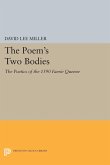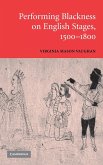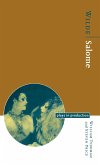Short description/annotation
Looks at the violation of bodies in Shakespeare's tragedies, especially as shown (or concealed) in performance on stage and screen.
Main description
This timely study looks at the violation of bodies in Shakespeare's tragedies, especially as revealed (or concealed) in performance on stage and screen. Pascale Aebischer discusses stage and screen performances of Titus Andronicus, Hamlet, Othello and King Lear with a view to showing how bodies which are virtually absent from both playtexts and critical discourse (due to silence, disability, marginalisation, racial otherness or death) can be prominent in performance, where their representation reflects the cultural and political climate of the production. Aebischer focuses on post-1980 Royal Shakespeare Company and Royal National Theatre productions but also covers film adaptations and landmark productions from the nineteenth century onwards. Her book will interest scholars and students of Shakespeare, gender, performance and cultural studies.
Table of contents:
Prologue: The Gravedigger's daughter - a story of loss; Introduction: filling the empty space; 1. Titus Andronicus: spectacular obscenities; 2. 'Not dead(?)33; not yet quite dead(?)33;': Hamlet's unruly corpses; 3. Murderous male moors: gazing at race in Titus Andronicus and Othello; 4. En-gendering violence and suffering in King Lear; Epilogue: Polly goes to Hollywood - a success story; Appendix: Table of main productions cited.
Looks at the violation of bodies in Shakespeare's tragedies, especially as shown (or concealed) in performance on stage and screen.
Main description
This timely study looks at the violation of bodies in Shakespeare's tragedies, especially as revealed (or concealed) in performance on stage and screen. Pascale Aebischer discusses stage and screen performances of Titus Andronicus, Hamlet, Othello and King Lear with a view to showing how bodies which are virtually absent from both playtexts and critical discourse (due to silence, disability, marginalisation, racial otherness or death) can be prominent in performance, where their representation reflects the cultural and political climate of the production. Aebischer focuses on post-1980 Royal Shakespeare Company and Royal National Theatre productions but also covers film adaptations and landmark productions from the nineteenth century onwards. Her book will interest scholars and students of Shakespeare, gender, performance and cultural studies.
Table of contents:
Prologue: The Gravedigger's daughter - a story of loss; Introduction: filling the empty space; 1. Titus Andronicus: spectacular obscenities; 2. 'Not dead(?)33; not yet quite dead(?)33;': Hamlet's unruly corpses; 3. Murderous male moors: gazing at race in Titus Andronicus and Othello; 4. En-gendering violence and suffering in King Lear; Epilogue: Polly goes to Hollywood - a success story; Appendix: Table of main productions cited.








